
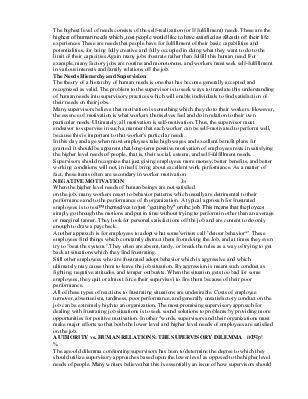
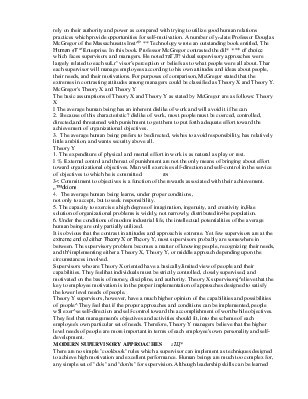
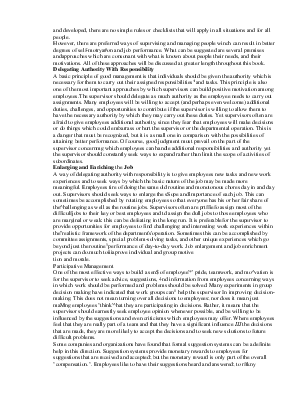
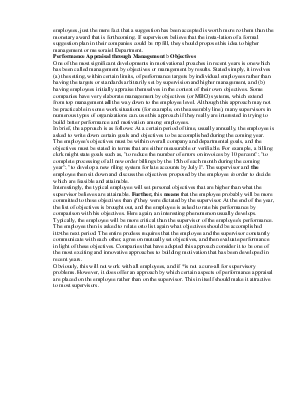
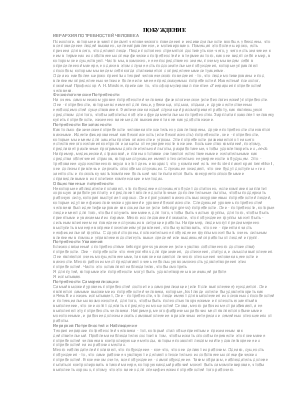
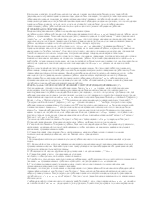
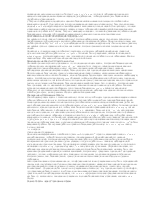

MOTIVATION
THE HIERARCHY OF HUMAN NEEDS
Psychologists who study the subject of human behavior and personality generally are convinced that all behavior of human beings is caused, goal-oriented, and motivated. Siting this more broadly, there is a reason for everything that people do. People constantly are striving to attain something that has meaning to them in terms of their own particular needs and in terms of how they see themselves and the world in which they exist. Often we may not be directly aware of why we behave in a certain manner, but even so there are subconscious motives that govern the way we behave when confronted with certain situations.
One of the most widely accepted theories of human behavior is that people are motivated and influenced by certain well-defined and more or less predictable needs. A famous psychologist, the late Professor A. H. Maslow, is credited with having formulated the concept df a hierarchy of human needs.
Physiological Needs
At the very lowest level of human needs are the physiological (or biological) needs. These are needs which everyone has for food, shelter, rest, recreation, and other physical necessities of existence. Virtually every employee views work as being a means for taking care of these fundamental needs. The paycheck enables an individual to purchase the necessities vital to survival as well as the comforts of life.
Safety Needs
Once a person's physical needs are relatively satisfied, other needs become important. Identified as the safety (or security) needs, these are needs which we have for protection against danger and threat. These needs evolve from our natural desire for control over and protection from the uncertainties of life. Most companies, therefore, offer various fringe benefit programs designed to satisfy these„eeds. For example, medical, insurance, and retirement plans are considered natural and desirable as means of alleviating fears which employees have concerning the uncertainties of the future. It is virtu-requirement in this day and age that companies have a weifc ided package of fringe benefitsvif they are to attract and keep capable employees. Employees expect that these will be available «r their employment,: and for the most part/companies try to be competitive and fair in their compensation policies and practices.
Social Needs
Some supervisors believe that employee motivation will be sufficient if the company pays good wages and offers ample fringe benefits in order to maintain a work force that performs well. They overlook the importance of the higher level needs of human beings which go beyond the physiological and safety levels. The next level of human needs has been identified as the social (or belongingness) needs. These are needs which people have for getting attention, for being part of a group, for being accepted and respected by their peers. Many studies have shown that group motivation can be a powerful influence upon behavior of employees in the work situation. For example, individuals may deliberately perform in a manner contrary to management's wishes in order to feel that they are an accepted part of an informal group. On the other hand, positive group motivation can be a very powerful influence in helping management achieve above average or outstanding performance from individuals and groups.
Esteem Needs
Closely related to the belongingness needs are the esteem (or self-respect) needs. These are needs that everyonehas for recognition, achievement, status, and a sense of accomplishment. They are very powerful, since they relate to an individual's personal feeling of worth and importance. Many jobs offer very little opportunity for satisfaction of these needs. Often it is left to the supervisor to look
I for ways by which these needs may be satisfied in meaningful work
I experiences.
Self-Realization Needs
The highest level of needs consists of the self-realization (or If fulfillment) needs. These are the highest of human needs which „tost people would like to have satisfied as aResult of: their life experiences These are needs that people have for fulfillment of their basic capabilities and potentialities, for being fully creative and fully occupied in doing what they want to do to the limit of their capacities Again many jobs frustrate rather than fulfill this human need. For example, many factory jobs are routine and monotonous, and workers must seek self-fulfillment in various interests and family relations off the job.
The Needs Hierarchy and Supervision
The theory of a hierarchy of human needs is one that has become generally accepted and recognized as valid. The problem to the supervisor is to seek ways to translate this understanding of human needs into supervisory practices which will enable individuals to find satisfaction of their needs on their jobs.
Many supervisors believe that motivation is something which they do to their workers. However, the essence of motivation is what workers themselves feel and do in relation to their own particular needs. Ultimately, all motivation is self-motivation. Thus, the supervisor must endeavor to supervise in such a manner that each worker can be self-motivated to perform well, because this is important to that worker's particular needs.
Уважаемый посетитель!
Чтобы распечатать файл, скачайте его (в формате Word).
Ссылка на скачивание - внизу страницы.